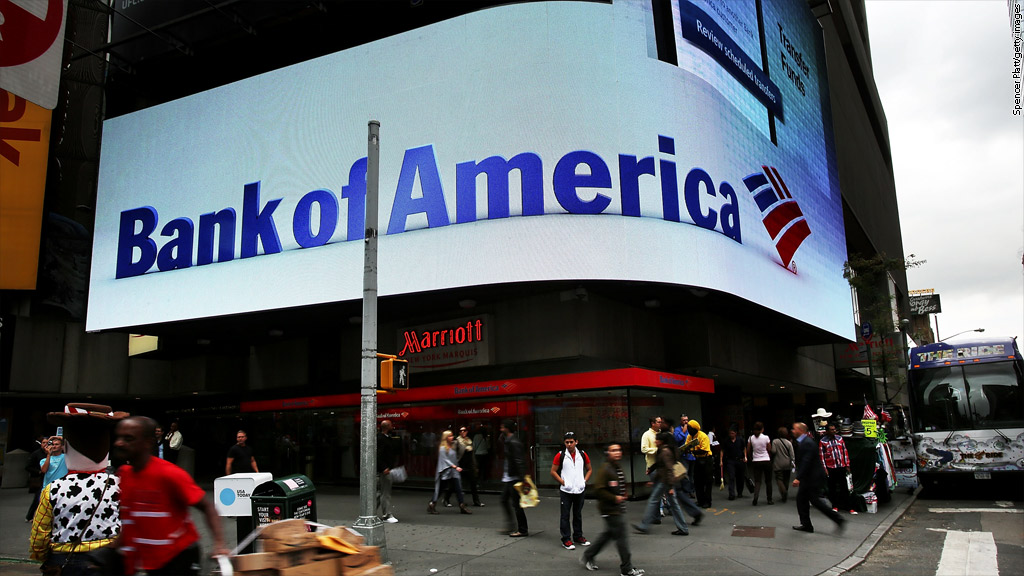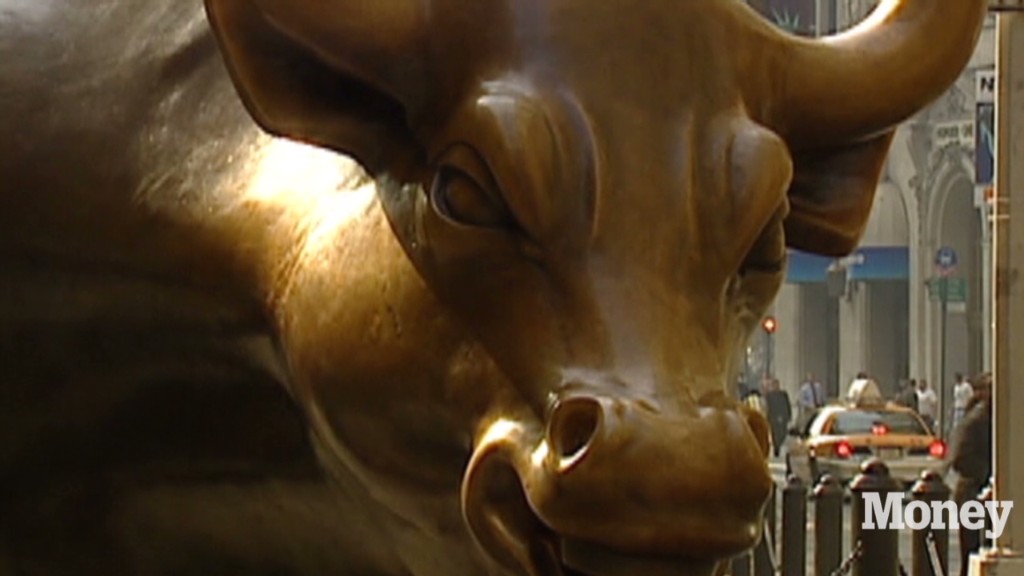
Forget about the taxpayer bailouts, lawsuits and increased regulation. Bank stocks are back with a vengeance.
JPMorgan Chase (JPM) and Wells Fargo (WFC) hit record highs Monday, and Goldman Sachs (GS), Citigroup (C), Morgan Stanley (MS), and Bank of America (BAC) are trading at multi-year plateaus.
Investors plowed over $8 billion into financial stock ETFs in 2013 -- the most since 2008 before the crash - making it the most popular sector, according to TrimTabs.
So why are investors betting on banks?
In short, the economy.
"Banks are cyclical, they follow the recovery," said Marty Mosby, a bank analyst with Guggenheim Securities.
Related: Experts: Stocks will go up, but not by much
Andrew Marquardt, head of bank research at Evercore Partners, echoed that sentiment.
"As the economy expands, businesses will want to take out loans," he explained.
Wall Street is very bullish on the banks. Nearly 20% of the investment strategists and money managers surveyed by CNNMoney predict financials will be the single best performing sector in 2014.
What about rising rates though? An increase in long-term bond yields has made some investors nervous because it could lead to less demand for mortgages and threaten to derail the recovery in housing. But Marquardt thinks an expected slowdown in mortgage lending has already been priced into bank stocks.
He adds that higher interest rates should actually boost lending, and therefore revenue, at some of the nation's largest financial firms since it is more profitable to make loans when rates are higher. His favorite pick in the group is Bank of America, which he says is "the way to play the U.S. economic recovery, period."
Banks able to get by without huge trading windfalls: Still, analysts point out that the big banks may never reap the kind of profits that they used to a few years ago. The way Wall Street does business has fundamentally changed since the heady days leading up to the financial crisis, thanks to tighter regulation from Dodd-Frank legislation, which aims to stamp out excessive risk in the banking sector.
Lucrative businesses such as proprietary trading -- or trading with banks' own money for profit -- have been mostly shuttered.

And that means traditional investment banks such as Goldman Sachs have come to rely heavily on fees generated from more cyclical activities such as underwriting initial public offerings and advising companies on mergers.
But 2013 was a banner year for IPOs, and firms are hoping that investment banking revenue can continue to make up for the loss in trading profits.
"A better economic backdrop should lead to more confidence, which should lead to more deals," Marquardt said.
Wells Fargo and Morgan Stanley have also been successful in ramping up their wealth management brokerage units to add to their bottom lines. Advising rich clients on what to do with their money can also be extremely profitable.
Related: Big bank stocks shrug off Volcker Rule
Even JPMorgan - the nation's largest bank by assets and the target of numerous federal lawsuits and investigations - has continued to thrive despite a ton of negative headlines.
On Tuesday, prosecutors said the firm agreed to pay $1.7 billion for turning a blind eye to Ponzi scheme kingpin Bernard Madoff, who was a client of the bank.
That's on top of a record $13 billion settlement in November over the mortgage-backed securities sold ahead of the financial crisis. JPMorgan also settled cases related to energy manipulation and the so-called London whale trading snafu. It is also currently under investigation for its hiring practices in China.
But investors are eager to see the bank put its legal problems to bed.
"Going forward, anything they can get resolved is going to be positive for them," said Daniel Marchon, an analyst with Raymond James Financial who covers JPMorgan.
Too big to fail or too big to ignore? But are the country's banks still "too big to fail?" It depends on who you ask.
As government-mandated capital cushions increase, "there's less and less of a likelihood of a bank failure," Marchon said.
TrimTabs chief executive officer David Santschi disagrees. He argues that banks still rely on too much leverage, or borrowed money, to conduct business and are therefore vulnerable to higher interest rates.
Still, financial stocks are poised to have the highest earnings growth rate of any sector for the fourth quarter of 2013, according to FactSet Research. Investors will get further insight into the banks when JPMorgan and Wells Fargo kick off 2013 fourth quarter earnings next Tuesday. Citi, Goldman Sachs, BofA and Morgan Stanley will also release their latest results next week.
But the biggest concern for bank investors may be that the stocks are no longer cheap.
The financial sector is currently trading at about 13 times earnings estimates for 2014, according to FactSet. While that's below the ratio of 15 times earnings estimates for the S&P 500, it's above the 10-year average of around 12 times earnings for financial stocks.
As such, Marchon says not every bank stock is worth buying.
"Some of them are still a bargain, but they don't all make sense," he said.


